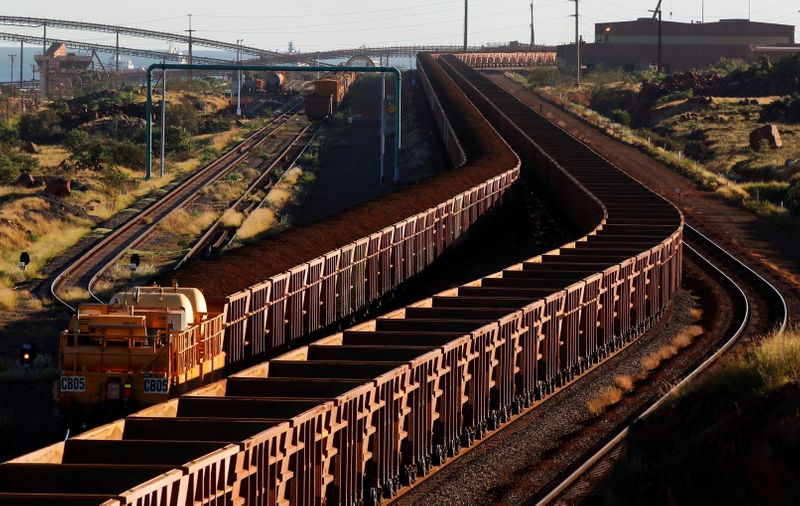By Wayne Cole
SYDNEY (Reuters) - Australia's new security pact with the United States and the UK, seen as a move to contain China, may worsen strained ties with its biggest export customer, but China's insatiable appetite for resources may limit its punitive responses, say analysts.
The security pact with the Western powers, including access to U.S. nuclear submarine technology, will be seen by Beijing, which is embroiled in a long-running trade spat with Canberra, as a threat, said Michael Sullivan, International Relations Lecturer at Flinders University.
"China will view the decision to expand defence cooperation with the US and UK and, in the future, base US strategic strike capabilities in Australia as confirmation that we are a growing military threat to its interests, such as the Belt and Road Initiative," said Sullivan.
China has in recent years imposed hefty tariffs and restrictions on Australian exports including wine, beef and barley, and outright banned coal imports to express its displeasure over Canberra's foreign policies, though with only limited success so far.
The sums at risk are massive as Australia exported a record A$173 billion ($127 billion) of mostly resources to China in the 12 months to July, accounting for more than 35% of Australia's total exports. Australia bought just A$87 billion of, mostly manufactured, goods from China in the same period.
That torrent of cash has blessed Australia with a run of current account surpluses, while boosting miners' profits and dividends. It's also been a vital windfall to government tax receipts at a time when it is running huge budget deficits to fund emergency support for citizens in coronavirus lockdowns.
By far the biggest export earner has been iron ore as China's demand for steel drove prices for the mineral to all-time highs in May. Australia's metal ore exports in July alone reached A$19 billion, or more than 40% of total earnings.
China has partly turned the tables in recent months by clamping down on steel output and warning of stricter controls on major carbon emitters, steps that have seen iron ore prices plunge 45% from their peaks.
Still, China has few options other than to keep buying Australian iron ore. Its own mines produce only 15% of the ore it consumes and the only other major international source is Brazil which is hitting capacity constraints.
"If China just stopped importing iron ore, that would be a disaster for Australia," said Shane Oliver, chief economist at AMP (OTC:AMLTF) Capital. "But it would essentially mean China would have to shut much of its own economy as well."
"Australia has also been able to find new markets for its exports," he added. "So while tensions with China are a threat, the impact hasn't really been severe so far."
Another point of pressure on Australia had been Beijing's control over Chinese tourists and students that used to spend time and money in the country.

The pandemic has put paid to that for now by effectively closing Australia's international borders, though the local tourism and education sectors are pushing hard for a re-opening by the end of this year.
($1 = 1.3624 Australian dollars)